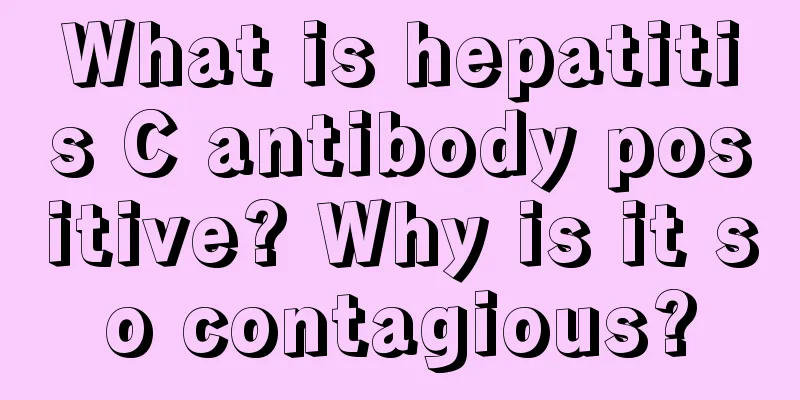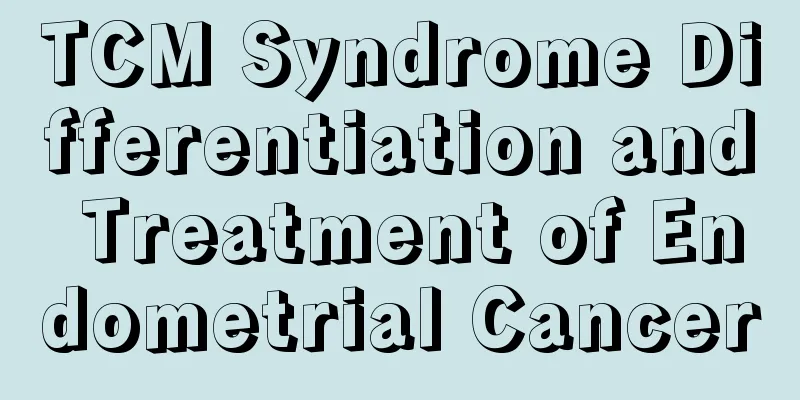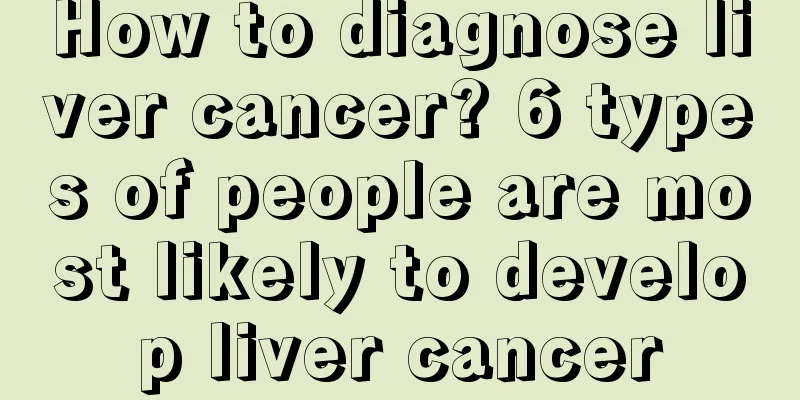What is hepatitis C antibody positive? Why is it so contagious?

|
Hepatitis C antibody refers to an antibody on the surface of hepatitis C. Studies have found that this antibody has no protective ability for the body. If it shows positive, it means that there are hepatitis C antibodies in the body. It also indicates that there is a high possibility of the presence of hepatitis C virus in the body, which needs to be taken seriously. 1. Introduction Hepatitis C antibodies have no protective effect, and patients do not feel any discomfort in the early stages of hepatitis C virus infection. After an incubation period of about 2 months, only about a quarter of patients will experience symptoms such as poor appetite, fatigue, and jaundice, while most patients will not feel anything. Moreover, it takes about twenty years after infection for cirrhosis to develop. Therefore, many people do not even know that they have been infected with the hepatitis C virus. After the virus has quietly "hidden" in the body for 5-12 weeks (about 8 weeks on average), hepatitis C virus-related antibodies can be detected in the patient's blood. However, this antibody does not have the function of neutralizing or eliminating invading viruses, that is, this antibody has no protective effect, which is different from hepatitis B. Therefore, a positive hepatitis C virus antibody test does not mean that the patient will not get hepatitis C again, it just means that the patient has been infected or is currently infected with hepatitis C. 2. Infectivity The blood of patients with positive hepatitis C antibodies contains hepatitis C virus and is contagious. A prospective study was conducted on the incidence of hepatitis C in 383 cardiac surgery patients who received 5150 blood products between 1984 and 1986. The results showed that among the 9 patients who developed hepatitis C after blood transfusion, 6 (67%) were positive for hepatitis C antibodies, while among the 374 patients who did not develop hepatitis C, only 9 (2.4%) were positive for hepatitis C antibodies (P<0.001). Nine patients with post-transfusion hepatitis C received a total of 151 blood products, of which 6 (3.9%) were positive for hepatitis C antibodies. 374 patients without hepatitis C received a total of 4999 blood products, of which 31 (0.6%) were positive for hepatitis C antibodies (P<0.001). How to treat Compound vitamin B, vitamin C, inosine tablets, and liver protection treatment, but do not take too many drugs. Too many drugs: Chinese or Western medicine may cause liver damage. Because any drug must be metabolized by the liver. Will more or less aggravate liver damage. If liver function is normal, no special treatment is needed. Normal liver function is the goal. 1. You can be diagnosed with hepatitis C virus infection and further tests of liver function, HCV RNA, etc. are needed. If liver function is abnormal and the viral load is very high, you should receive standard treatment for hepatitis C, including liver protection and more importantly, antiviral treatment. 2. If you suffer from hepatitis C, in addition to active treatment, you should maintain an optimistic attitude in life, quit drinking, and avoid being too tired. |
<<: What is the reason for stomach pain, diarrhea and blood?
>>: Can indigestion cause abdominal pain? What are the symptoms?
Recommend
Can breast cancer patients drink goat milk?
Can breast cancer patients drink goat milk? 1. Fo...
The role of Lactobacillus casei
Lactobacillus casei is a food raw material. Most ...
What symptoms does Kangfu Gel mainly treat?
Kangfu Gel is mainly used to treat vulvitis, vulv...
What fruits to eat to prevent bladder cancer
Fruits can prevent many diseases and provide the ...
Men with poor sleep should beware of the three major causes of prostate cancer
Prostate cancer is a malignant tumor that occurs ...
Alkaline protease
Enzymes are widely used in biology. Enzymes are a...
What are the final symptoms of advanced lung cancer?
What are the final symptoms of advanced lung canc...
What is missing from beriberi? Causes of beriberi
Many of us have athlete's foot, and it is hig...
Always have the urge to defecate and the anus feels like it's falling
Normally we need to defecate every day, unless th...
The dangers of low heart rate
Many people think that the heart rate is not impo...
How to quickly remove tea rust
In modern life, tea has become an indispensable d...
When I lie down, my chest feels stuffy. When I sit up, I feel uncomfortable
Many people have the habit of lying down to rest ...
What are some tips for removing dandruff
When it comes to removing dandruff, many people t...
After the divorce, I don’t know what to do next
Nowadays, young people get married quickly, so mo...
What does a mole on the outside of your arm mean?
It is inevitable that everyone will have moles on...









